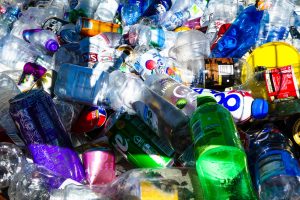The state of our planet’s habitats plays a major role in human health and wellbeing. An estimated 11 million metric tons of plastic is dumped into the ocean annually, which causes toxins to enter the food chain as a result of marine life ingesting these plastics. Sofidel, a leading global provider of paper for hygienic and domestic use, shared four sustainability tips for commercial facilities ahead of World Habitat Day, celebrated on October 4.

“World Habitat Day is an important reminder that we share a collective responsibility to protect the planet for future generations. There are a variety of changes facility managers can make to positively impact the environment and the many species that call it home,” said Giorgia Giove, Marketing Manager, Sofidel.
Consider the following tips to improve sustainability in your facility:
Reduce the use of single-use plastics.
Plastic waste, particularly from single-use plastics, harms around 700 various marine species via ingestion or entanglement. Facilities should assess areas where durable reusable options are feasible to curb waste. Purchasing products that limit the use of plastic packaging is another key tactic.
Purchase products made from recycled materials.
Plastic production is expected to grow 30% over the next five years, according to the Plastic Waste Index. Seek out solutions that creatively repurpose recovered materials, like restroom dispensers made from ocean plastic pollution, to give waste a new life.
Add labelled recycling bins for easy sorting.
The Environmental Protection Agency (EPA) found plastics made up 18% of materials in landfills in 2018. Adding collection bins for different types of materials can reduce the number of recyclables that end up in landfills.
Regularly maintain equipment and assets.
Purchase equipment and facility assets like HVAC units, restroom partitions and carpet that are built to last. Then, regularly maintain these items to keep them in good shape and prolong their lifespan. Whenever possible, aim for repair rather than replacement to avoid unnecessary landfill waste.
To further support the reduction of plastic in the ocean, Sofidel has partnered with Ocean Conservancy, a U.S.-based advocacy non-profit that fights ocean pollution. Sofidel also developed its Papernet brand HyTech Seas paper towel and toilet paper dispensers using recovered fishing nets from the ocean, and the purchase of each dispenser supports the ongoing fight against ocean plastic pollution.
Sofidel repurposes one ton of recovered fishing nets for every 582 HyTech Seas toilet paper dispensers manufactured. Meanwhile, one ton of fishing nets is recovered for every 484 HyTech Seas paper towel dispensers.
For more information, visit https://hytechseas.papernet.com/.








